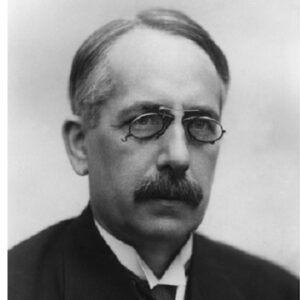Gustav Suits was an Estonian poet who was widely regarded as one of the greatest writers of his generation. Additionally, he was a founding member of the literary movement group ‘Noor-Eesti’. Born in Estonia, he decided early in life to pursue a career in literature, publishing his first article in a newspaper at the age of sixteen. He then became a member of Noor-Eesti, a literary society that had a profound effect on Estonian culture. His poetry combined highly personal elements with broad statements about Estonian history and humanity’s fate. He published six volumes of poetry, nearly all of which are considered classics of Estonian literature. He later became a professor at the University of Tartu, where he established the first university-level literature course in Estonia. Gustav Suits established himself as one of Estonia’s greatest poets and holds a prominent place in Estonian literature. His final days were spent in Sweden conducting literary research and writing poems before succumbing to a serious illness. His poems were a synthesis of radical, romantic, and melancholic tones, replete with symbolism, metaphors, and allusions.
Childhood & Adolescence
Gustav Suits was born in the parish of Vnnu, in southern Estonia, on November 30, 1883, into the family of a village teacher.
He relocated to Tartu, Estonia, in 1895 and enrolled in the Alexander Gymnasium. The town’s university atmosphere had a profound effect on him, and he decided to join its literary society.
He published his first newspaper article, titled ‘Uus Aeg,’ at the age of sixteen (New Time). Subsequently, the same newspaper published his first poem, ‘Water Lilies.’
Career of Gustav
Gustav Suits founded the literary society ‘Friends of Literature’ (Kirjanduse Sbrad) in 1901. Between 1901 and 1902, the society published a journal called ‘Rays’.
Simultaneously, he became the intellectual and conceptual mentor of the literary group Noor-Eesti (Young Estonia), which was widely regarded as the most influential literary group in Estonian cultural history.
In 1905, he published his first collection of poetry, titled ‘The Fire of Life.’ Due to its youthful enthusiasm, it became one of his most popular and appealing works. Between 1900 and 1917, his early poetry reflected the revolution gaining momentum in Estonia, as well as the youth movement.
Between 1905 and 1916, he developed a close relationship with the Estonian literary movement. It infused Estonian literature with European influences and also merged European and Estonian styles.
He studied European literature as well as the Finnish language, literature, and folklore at Helsinki University during this time. He was a member of the Estonian Socialist Revolutionary Party between 1917 and 1919.
Gustav Suits was appointed Professor at the University of Tartu in 1921, shortly after Estonia gained independence. He held this position until 1944. He gave lectures on literary theory, comparative literature, and the history of Estonian literature.
He placed a premium on his European connections and visited Finland, France, Germany, Holland, Sweden, and the Soviet Union frequently. He lectured at Königsberg University, Stockholm University, and Göteborg University. He was inducted into the Finnish Literary Society and the French Academy as a corresponding member.
Gustav Suits lost his home in Tartu in 1941, along with its colossal library, and his numerous unpublished scholarly papers perished during the Second World War.
He fled Soviet-occupied Estonia with thousands of other Estonians in 1944, traveling via Finland to Sweden. He spent his final years in Stockholm, where he was prolific in his research and also wrote poetry.
Gustav Suits published six volumes of poetry during his lifetime, including ‘The Land of Winds’ (1913) and ‘It Is All But a Dream’ (1914). (1922). Along with poetry, he wrote two essays, ‘Targets and Views’ (1906) and ‘The Young Estonia Slopes’ (1907). (1931).
Works of Significant Value
Gustav Suits was Estonia’s first university professor of literature, and his work as a scholar and university professor was groundbreaking.
In 1924, at Tartu University, he founded the Academic Literary Society, which organized lectures and meetings. Additionally, the society self-published.
His poetry collection, ‘The Land of Winds’ (1913), reflected his generation’s post-revolutionary mood of decline, disappointment, and an awareness of premature aging. It is widely regarded as Estonian literature’s masterwork of poetry.
Another of his classics was the 1922 collection of poetry titled ‘It Is All But a Dream,’ which was written in a much more modernist and intellectual vein than his previous works.
Distinctions & Honors
Gustav Suits was awarded the ‘Order of the White Star’, third class, in 1939. Uppsala University bestowed upon him an honorary doctorate.
Personal History and Endowment
Aino Thauvón married Gustav Suits in 1911. Both daughters were born to the couple. Gustav Suits died in Stockholm, Sweden, on May 23, 1956, following a bout with a serious illness. He was laid to rest in Sweden’s Forest Cemetery.
Estimated Net Worth
Gustav is one of the wealthiest poets and is listed on the list of the most popular poets. Gustav Suits’ net worth is estimated to be around $3 billion, based on our analysis of Wikipedia, Forbes, and Business Insider.


